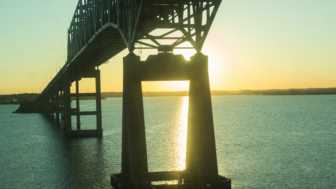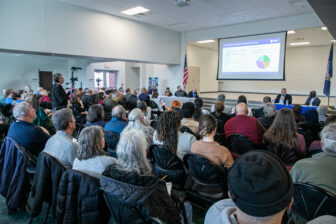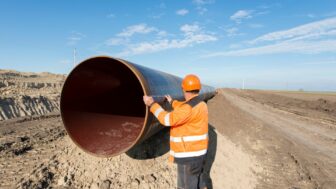FOR IMMEDIATE RELEASE
January 9, 2013
CONTACT:
Kelly Trout, 240-396-2022 or 717-439-0346, kelly@chesapeakeclimate.org
Mike Tidwell, 240-460-5838, mtidwell@chesapeakeclimate.org
Lawmakers are greeted with the choice of polluted well water from a PA fracking area or clean water from a MD State House drinking fountain to underscore risk to state water resources
ANNAPOLIS—As the 2013 Maryland General Assembly session commenced Wednesday, dozens of activists came out to kick off an historic campaign to pass a legislative moratorium on fracking by holding a “water taste test” for lawmakers on Lawyer’s Mall. Activists have declared 2013 the year for legislators to finally put a moratorium in place and guarantee protections for communities at risk of water and air pollution, health problems and other harmful impacts associated with this controversial drilling process.
“Our neighbors in Pennsylvania have drilled first and asked questions later, and the polluted PA well water sample we brought to Annapolis today shows the potentially dire costs of that approach,” said Mike Tidwell, executive director of the Chesapeake Climate Action Network. “Lawmakers need to make our state policy clear in 2013: As long as the gas industry continues to block thorough study of the dangers of fracking in Maryland, there should be no fracking in Maryland—period.”
The activists highlighted the risks fracking poses to Maryland’s water resources by inviting legislators to choose between the following water samples: 1) clean water from the State Capitol drinking fountain; 2) clean water from western Maryland threatened by fracking; 3) seemingly clear but at-risk water collected from a PA county impacted by fracking infrastructure; or 4) dramatically polluted water from a family home abandoned for lack of safe water in a heavily fracked region of southwestern PA. Although—understandably—no passersby chose to sample water from category four, a health liability waiver was nonetheless provided and a signature required before anyone could taste the potentially hazardous options.
“Today, we were confronted with one of the many risks of fracking—contaminated, toxic drinking water,” said Delegate Heather Mizeur (D-20). “The potential dangers don’t stop there, and before one drill goes into Maryland soil, we need answers about this controversial drilling method. That’s why I’m introducing a moratorium on fracking until our state study is complete. The bill’s intent is simple: no studies, no fracking.”
The moratorium legislation to be introduced by Del. Heather Mizeur (D-20) would place a hold on all drilling permits in Maryland until and unless the state completes a suite of robust scientific risk studies and legislators deem those risks acceptable to the public. Leading Maryland environmental groups have made passing the moratorium bill a top legislative priority for the 2013 session of the General Assembly.
To date, lobbying by the gas industry, led by the American Petroleum Institute, has blocked legislation that would fund risk studies called for in Governor O’Malley’s 2011 executive order on fracking. Meanwhile, there are no formal laws on the books to safeguard communities from the dangers of drilling. Drew Cobbs, the top Annapolis lobbyist for the American Petroleum Institute, was invited to attend the “taste test” today.
Activists holding the “taste test” said that grassroots pressure would make the difference in spurring action by lawmakers to address the fracking threat in 2013.
“Last month, hundreds Marylanders came together at a landmark Baltimore conference and launched a statewide grassroots movement committed to passing a moratorium on fracking this year,” said Megan Jenny, MD field coordinator for the Chesapeake Climate Action Network. “Today’s ‘taste test’ is just the first wave of grassroots pressure that legislators should expect to see in Annapolis urging them to pass a strong fracking moratorium.”
Fracking’s impact on water resources is one of many widespread impacts linked to fracking in neighboring states where drilling already occurs. Millions of gallons of freshwater are required for each drilling well, and a major by-product of the fracking process is wastewater laced with toxic chemicals, corrosive salts, heavy metals and radioactive materials, for which there is no known, fail-safe method of disposal. In some cases, people in heavily fracked regions of Pennsylvania have reported flammable tap water linked to methane contamination and polluted, brown well water they can no longer safely drink. All in all, impacts from the surge of fracking in Pennsylvania point to a toxic legacy of polluted drinking water and contaminated rivers and streams.
###
The Chesapeake Climate Action Network (CCAN) is the first grassroots, nonprofit organization dedicated exclusively to fighting global warming in Maryland, Virginia, and Washington, D.C. Our mission is to build and mobilize a powerful grassroots movement in this unique region that surrounds our nation’s capital to call for state, national and international policies that will put us on a path to climate stability.





